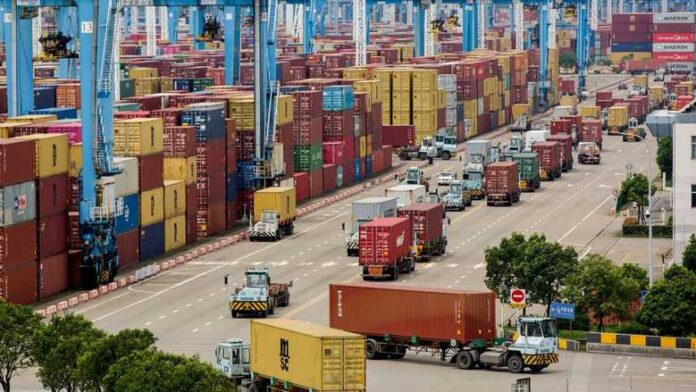By: Staff Writer
August 03, Colombo (LNW): In a bid to retain market access and ease export pressures, Sri Lanka has granted wide-ranging trade concessions to the United States, prompting Washington to reduce its newly imposed “reciprocal tariff” on Sri Lankan goods from 30% to 20%, effective from August 1, authoritative sources revealed.
The concession deal follows intense bilateral negotiations after the U.S. announced earlier this year—under an executive order by President Donald Trump—a reciprocal tariff scheme aimed at countries with significant trade surpluses against the U.S. While this move remains under legal scrutiny in the U.S., Sri Lanka has sought to mitigate the impact by agreeing to a broad set of reciprocal trade measures.
As part of the agreement, the U.S. granted tariff relief to 1,161 industrial goods and 42 agricultural products exported from Sri Lanka. However, these items will still be subject to Most Favoured Nation (MFN) tariff rates, which vary by product. The MFN status allows Sri Lanka to access standard U.S. trade benefits, but the relief from reciprocal tariffs on selected items will cushion the blow.
According to trade officials, a majority of the Sri Lankan goods covered under the list will face a zero reciprocal tariff, meaning only MFN tariffs will apply. A smaller segment will be subject to MFN rates plus a 10% reciprocal tariff, while all goods outside the covered list will attract the full 20% reciprocal tariff.
In return, Sri Lanka has opened its market considerably to U.S. goods. Concessions were granted on around 2,000 U.S. industrial products, alongside some agricultural items. Sources noted that a “very high percentage” of American goods will now enter Sri Lanka duty-free, aligning with Washington’s goal of narrowing its trade deficit with Sri Lanka, which has long been tilted in Colombo’s favor.
Sri Lanka has also committed to strategic purchases from the U.S., including US$500 million worth of crude oil and US$300 million worth of liquefied petroleum gas (LPG)—significant procurement that underscores the broader geopolitical and economic considerations behind the deal.
Furthermore, U.S. negotiators are reportedly pressing Sri Lanka to fully remove duties on U.S. exports, similar to arrangements already in place with Bangladesh, Vietnam, Cambodia, Pakistan, and Indonesia.
Sri Lanka has expressed interest in expanding its own concessionary list to cover additional lines in apparel, coconut-based products, gems and jewellery, and fisheries, as it seeks to boost exports and diversify trade within the limits of U.S. trade frameworks.
This development underscores the increasing strategic importance of trade diplomacy in Sri Lanka’s economic recovery and foreign policy, especially amid ongoing economic restructuring efforts and dependency on foreign trade and fuel imports.

